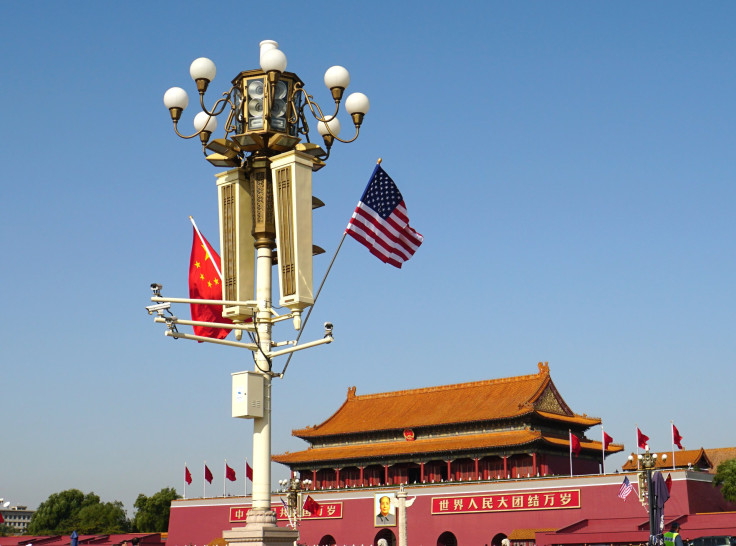US Efforts To Enforce Curbs On China Could Alienate Allies, Hurt Tech Industry, Expert Says
KEY POINTS
- Washington is seeking to consolidate its allies to curb China's tech industry
- However, efforts to slow down China's growth could also hurt cooperation on other key issues
- During a meeting, Tokyo didn't agree to match sweeping curbs targeting China's semiconductor
Russia's ongoing war in Ukraine and the growing threat of a Chinese invasion of Taiwan have accelerated the process of decoupling between the world's two major economies.
However, efforts to coax European and Asian countries to support Washington's sweeping curbs on Beijing appear to be risking a negative impact on American interests as well as a pushback from allies.
President Joe Biden's talks with Dutch Prime Minister Mark Rutte Tuesday seemingly failed to persuade the Netherlands to support the U.S. restrictions on exporting chip-making technology to China. Even so, White House press secretary Karine Jean-Pierre said the Biden administration will continue its efforts, according to a VOA.
"We don't push any of our allies or our partners. We consult with them closely, and they make their own decisions," Jean-Pierre said in a briefing to reporters Tuesday.
The Netherlands is a global leader in the semiconductor technology space and, hence, important for Washington as it seeks to consolidate its allies behind the efforts to curb China's tech industry. Taiwan, South Korea, and Japan, all of whom face China's aggressive posturing in the Asia-Pacific region, are key U.S. allies and also home to some of the world's leading technology companies.
Biden held a meeting with Japanese Prime Minister Fumio Kishida Friday. While the U.S. assured Tokyo of its commitment to Japan's defense, Kishida offered support to Biden's efforts against China. However, Tokyo did not agree to match the sweeping curbs targeting China's semiconductor and supercomputing industries.
While the divorce between Washington and Beijing is not total yet, the two leading economies are fast "moving toward lesser and lesser technological and economic interdependence," said Jon Bateman, senior fellow at the Carnegie Endowment for International Peace, in an interview with NPR.
Amid the growing global concerns over Beijing's use of advanced technology - from military hardware to surveillance and human rights violations - Bateman argued by moving fast in curtailing China with sweeping export curbs, Washington is not only risking alienating allies but also hurting America's own interests.
Export curbs can potentially create a competitive disadvantage for U.S. firms and may equally affect companies based in allied countries, he pointed out.
"We're really talking about a partial rollback of some of the most important links that we've seen in decades of globalization," Bateman added.
A plan to slow down China's technological growth could also hurt cooperation with Beijing on other important global issues, such as climate change and public health, Bateman further opined.
It is a concern particularly raised by European Commission President Ursula von der Leyen, who Tuesday spoke about the need to work and trade with China on clean tech.
Pitching for the need to pursue a level playing field rather than decoupling from the world's second-largest economy, Von der Leyen said, in a speech at the World Economic Forum (WEF) annual meeting in Davos that, "We will still need to work and trade with China – especially when it comes to this transition. So we need to focus on de-risking rather than decoupling."
Meanwhile, terming the U.S.-led efforts to disengage with China and Russia as suicidal, an opinion piece in the Chinese state media Global Times called on European countries to exercise foreign policy independence and to make decisions based on their domestic needs.

© Copyright IBTimes 2024. All rights reserved.












